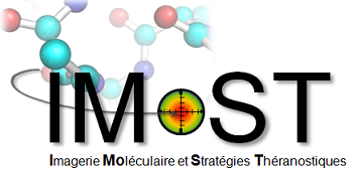IMoST - Melanoma targeted radionuclide therapy: effects on antitumor immune response and therapeutic strategies of combination
Published on June 8, 2021 – Updated on October 26, 2021
We study the effects of the melanoma targeted radionuclide therapy on the antitumoral immune response, using [131I]ICF01012 in monotherapy and combined with immune checkpoint inhibitors.
Lab

IMoST - Imagerie Moléculaire et Stratégies Théranostiques
Inserm UMR 1240
58 rue Montalembert
63000 CLERMONT-FERRAND
TaToo Team:
Group Leader : Emmanuel MOREAU